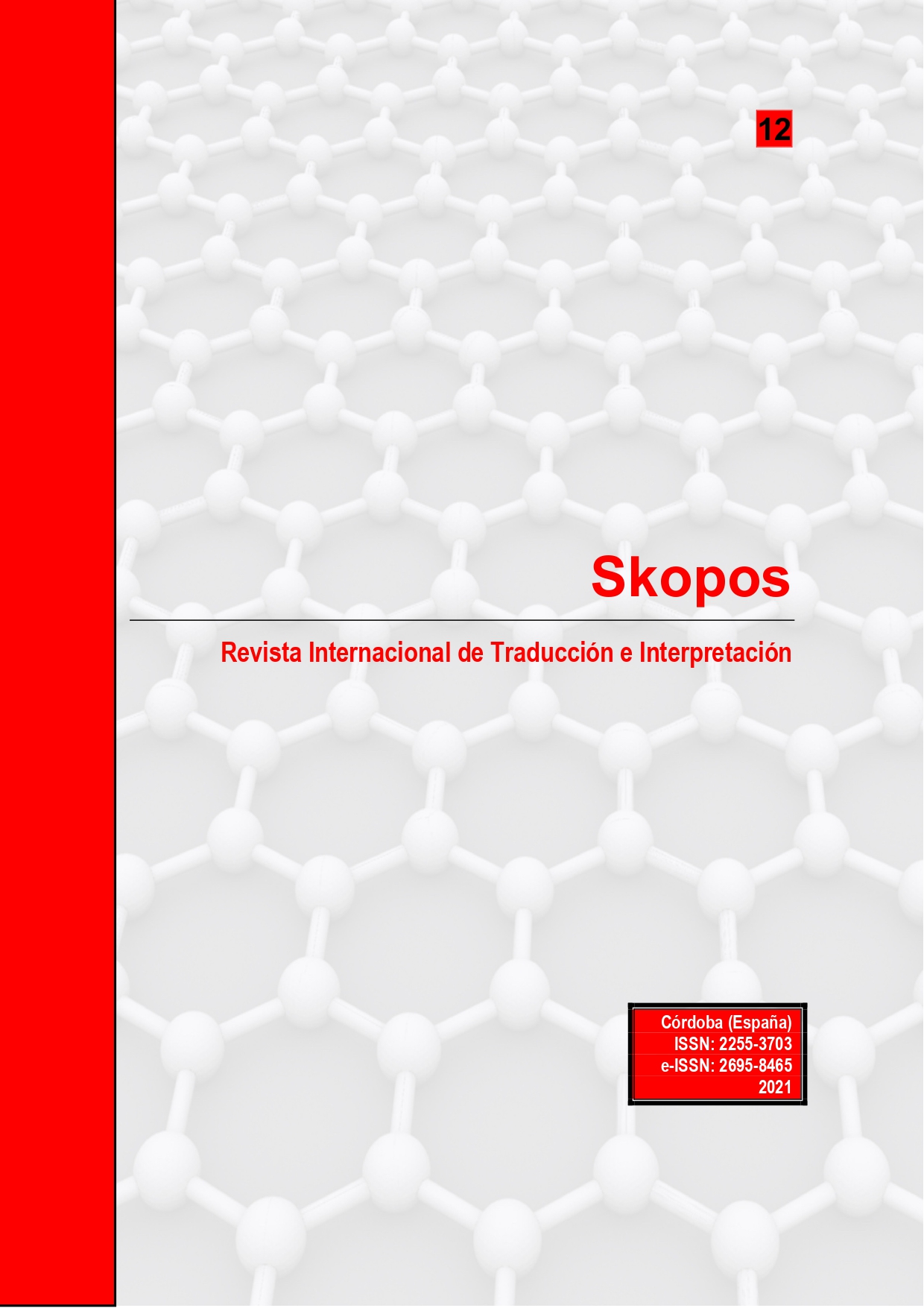El debilitamiento y fortalecimiento en la traducción del chino al español del adverbio de grado “很”: un estudio empírico basado en corpus
DOI:
https://doi.org/10.21071/skopos.v12i.14037Resumen
Basado en el método de corpus, este artículo utiliza estadísticas cuantitativas y realiza un análisis cualitativo para explorar las tendencias de debilitamiento y fortalecimiento en la traducción del adverbio de grado “很” (hěn: muy) en seis obras literarias chinas modernas. El resultado muestra que, en términos generales, las tendencias de equivalencia y debilitamiento son significativas, mientras que la de fortalecimiento es la menos preponderante. Además, las traducciones inversas presentan un debilitamiento más notable que las directas. Entre los motivos, se incluyen factores lingüísticos y la influencia del traductor. Los factores lingüísticos se reflejan principalmente en la ambigüedad de la intensidad semántica de los adverbios de grado, su degeneración semántica y la limitación de las reglas expresivas de español. La injerencia del traductor se basa principalmente en su intervención activa. Este artículo verifica las diferencias entre el chino y el español, proporciona una guía teórica para la traducción literaria y es un complemento para la investigación de los aspectos comunes del lenguaje de traducción en español.
Descargas
Publicado
Cómo citar
Número
Sección
Licencia
Política propuesta para revistas que ofrecen acceso abierto. Aquellos autores/as que tengan publicaciones con esta revista, aceptan los términos siguientes:
- Los autores/as conservarán sus derechos de autor y garantizarán a la revista el derecho de primera publicación de su obra, el cuál estará simultáneamente sujeto a la Licencia de reconocimiento de Creative Commons que permite a terceros compartir la obra siempre que se indique su autor y su primera publicación esta revista.
- Los autores/as podrán adoptar otros acuerdos de licencia no exclusiva de distribución de la versión de la obra publicada (p. ej.: depositarla en un archivo telemático institucional o publicarla en un volumen monográfico) siempre que se indique la publicación inicial en esta revista.
- Se permite y recomienda a los autores/as difundir su obra a través de Internet (p. ej.: en archivos telemáticos institucionales o en su página web) antes y durante el proceso de envío, lo cual puede producir intercambios interesantes y aumentar las citas de la obra publicada. (Véase El efecto del acceso abierto).






